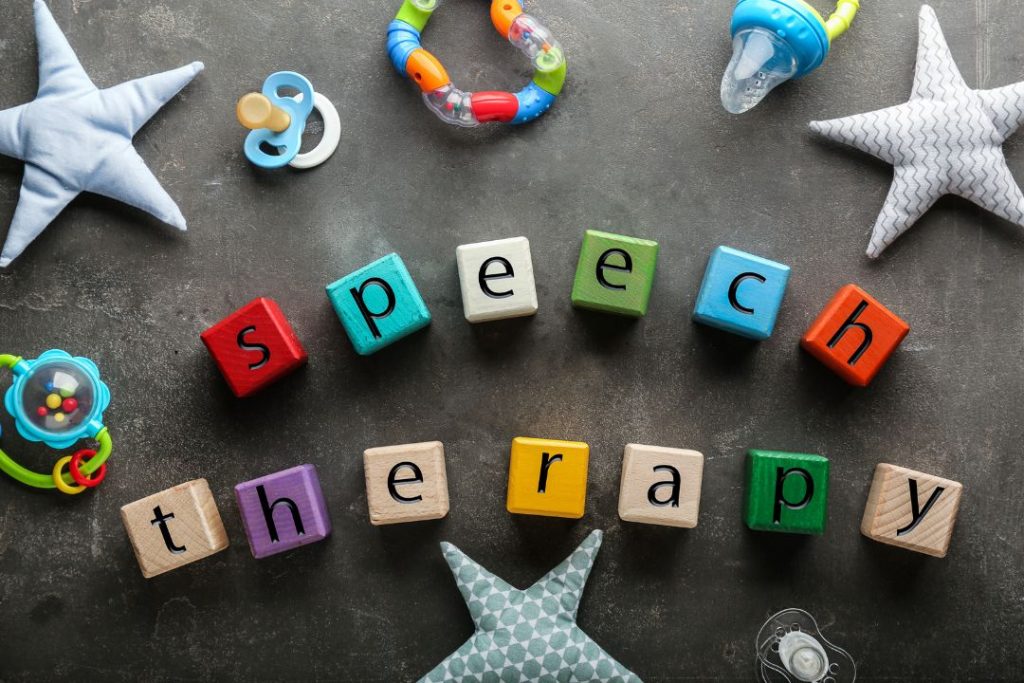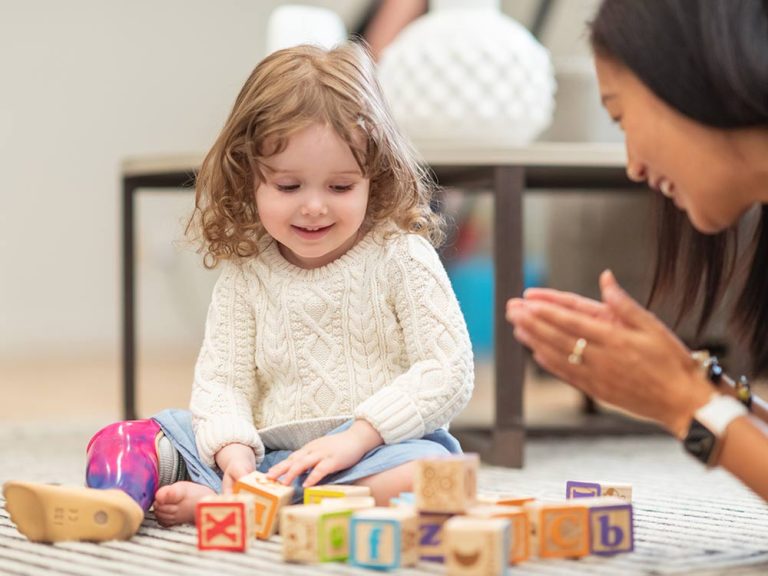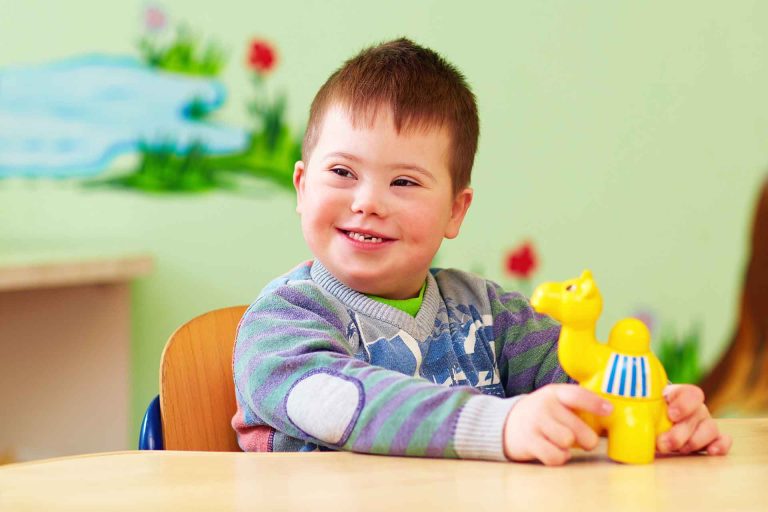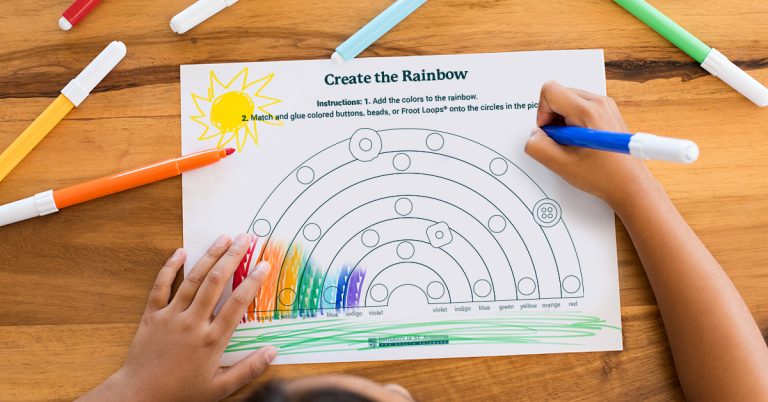How to Help a Child With Speech Articulation Problems

To help a child with speech articulation problems, consult a speech-language pathologist and practice consistent, clear pronunciation at home. Engage in playful speech exercises and employ positive reinforcement techniques.
Children with speech articulation issues face hurdles in expressing themselves effectively, which can impact their confidence and social skills. As a guardian or educator, you play a crucial role in identifying these challenges early and seeking appropriate intervention. Key strategies include ensuring a supportive environment that encourages frequent verbal interaction and celebrating the child’s progress, no matter how small.
Resources such as speech therapy, specialized apps, and interactive language games can reinforce practice. This introduction sets the stage for exploring practical methods to support children with articulation difficulties, aiming to enhance their communication abilities and overall well-being.
Understanding Speech Articulation Problems
When children begin to speak, each milestone is a moment of joy for parents. Yet, for some, the journey includes overcoming speech articulation problems. Speech articulation is the ability to move the tongue, lips, jaw, and palate—known as the articulators—to produce speech sounds correctly. Challenges with articulation can lead to difficulties in making these sounds, impacting a child’s ability to communicate effectively.
Symptoms And Signs Of Articulation Issues
Identifying signs of articulation issues is crucial for early intervention. Common symptoms include:
- Omissions: Leaving out sounds in words.
- Substitutions: Swapping one sound for another.
- Distortions: Making sounds in a novel, often unclear way.
- Additions: Inserting extra sounds within words.
Frequent mispronunciations or being difficult to understand compared to peers of the same age can be red flags, signaling the need for a speech evaluation.
Typical Age-related Speech Milestones
Monitoring a child’s progress against age-related speech milestones helps spot potential articulation problems. Each child develops at their own pace; however, some general milestones include:
| Age | Milestones |
|---|---|
| By Age 3 | Can articulate most vowels and consonants, speech is 75% intelligible. |
| Age 4-5 | Speech is mostly understandable, with occasional articulation errors. |
| Age 6+ | Able to produce most sounds correctly, clarity of speech is comparable to adults. |
If a child’s speech development doesn’t align with these milestones, considering speech therapy or a professional assessment may be beneficial.

Factors That Can Influence Speech Development
Several factors can shape a child’s speech development. Recognizing these can aid in supporting their articulation skills. Influential factors include:
- Genetic Predispositions: Family history can play a role in speech and language abilities.
- Hearing Loss: Even mild hearing impairments can affect how a child perceives and reproduces sounds.
- Neurodevelopmental Disorders: Conditions such as autism spectrum disorder (ASD) or apraxia can influence speech development.
- Cognitive Delays: Delays in mental development can impact language comprehension and speech.
- Socioeconomic Factors: Access to resources and language-rich environments contribute to a child’s language experiences and development.
Being proactive and attentive to these influencing factors plays a significant role in fostering a child’s articulation abilities and overall speech development.
Common Causes Of Articulation Struggles
Understanding the root of articulation difficulties in children is vital for their effective management and treatment. Various factors can contribute to speech articulation problems, ranging from auditory processing disorders to neurological disruptions. Identifying these common causes is the first step towards supporting children facing such challenges.
Auditory Processing Disorders
Auditory processing disorders (APD) can significantly affect a child’s ability to articulate sounds correctly. Children with APD struggle to process the information they hear because their brains do not fully recognize or interpret sounds, especially the nuances of speech.
- Difficulty distinguishing between similar sounds
- Challenges with following oral instructions
- Often needing repetitions to understand spoken language
Interventions might include auditory training and speech therapy, which can greatly improve speech articulation.
Physical Abnormalities Affecting Speech
Speech development can also be hindered by physical abnormalities. These include a range of structural issues such as:
| Physical Issue | Impact on Speech |
|---|---|
| Tongue-tie | Limits tongue movement and affects articulation |
| Cleft palate | Creates a gap affecting proper airflow and sound production |
| Malocclusion | Improper alignment of teeth can affect pronunciation |
Addressing these physical issues often requires a collaborative approach, incorporating speech therapy alongside surgical or orthodontic interventions where needed.
Neurological Factors Impacting Articulation
Certain neurological factors might lead to articulation disorders. This encompasses conditions that affect the neurological system, which in turn impairs speech skills, such as:
- Brain injuries
- Developmental disorders such as autism
- Neurological diseases
Neurological conditions might require a more specialized treatment plan, often involving a team of healthcare professionals, to address the articulation issues alongside the underlying neurological factors.
Help Children Overcome Speech Hurdles
Speech articulation problems in children can feel like formidable barriers to clear communication. Yet, with dedication and the right strategies, these challenges can transform into triumphs of language development. The journey to effective communication requires a joint effort between the child, their support network, and professional guidance. Embarking on this path, the following holistic approaches can catalyze significant improvement in a child’s speech articulation.
Role Of Speech Therapy And Exercises
Speech therapy is a cornerstone in managing speech articulation issues. Licensed speech therapists design tailored programs to address specific hurdles faced by each child. These often include:
- Articulation exercises: Drills focused on the correct pronunciation of sounds and syllables.
- Language intervention activities: Dynamic games and activities that encourage spontaneous use of words and sentences.
With regular therapy sessions, children can make consistent progress. Additionally, therapists often recommend home exercises to further encourage speech development.
Daily Practices For Speech Improvement
Daily routines contribute significantly to overcoming speech articulation challenges. Consistent practice embeds correct speech patterns into a child’s daily habits. Parents can assist by:
- Setting aside dedicated time for reading aloud, allows children to hear and mimic proper pronunciation.
- Engaging in “talk time” sessions where the child describes their day or tells a story, focusing on articulating their words clearly.
- Incorporating sing-along sessions can improve rhythm and timing in speech.
These activities should be part of a child’s daily routine to facilitate speech improvement naturally and enjoyably.
Positive Reinforcement Techniques
Positive reinforcement can work wonders for boosting a child’s confidence and motivation. Acknowledging achievements, no matter how small, reinforces their desire to improve. Techniques include:
| Technique | Description | Impact |
|---|---|---|
| Verbal Praise | Simple words of encouragement like “Great job!” | Builds self-esteem and enthusiasm for learning. |
| Sticker Charts | Children earn stickers for effectively articulating words or participating in practices. | Cultivates a visual sense of accomplishment. |
| Show and Tell | Parents display children’s progress to family and friends. | Enhances the child’s pride in their achievements. |
By applying these techniques, children sense their progress and become more invested in the journey to clearer speech articulation.
Incorporating Fun Into Articulation Therapy
Speech articulation problems in children can be a concerning issue for many parents and caregivers. However, transforming speech therapy into a fun and exciting experience can significantly enhance a child’s motivation and progress. By infusing therapy sessions with entertaining activities, children often forget they’re working on articulation; they’re simply having a great time! To make this possible, here are some creative ideas to turn articulation practice into engaging playtime.
Engaging Games For Practicing Sounds
Exciting board games and interactive play can be powerful tools for speech development. When children are absorbed in a game, their guard is down and learning takes place more naturally. Fun games like” Sound Bingo” or “Articulation Guess Who” allow for repetitive practice without the monotony. Here are a few games that could be part of effective speech therapy:
- Sound Fishing: Create a fishing game with magnetic letters or pictures representing target sounds. Each catch presents an opportunity to practice the sound.
- Phoneme Treasure Hunt: Hide objects or images around the house or therapy room, and have the child find and pronounce the name correctly.
- Articulation Board Games: Use traditional board games but add a twist; the child must say a word with the target sound correctly to take their turn.
Articulation Activities At Home
Practicing speech sounds shouldn’t end at the therapist’s office. Home articulation activities are crucial for continued progress. Simple, daily practices can be both effective and enjoyable:
- Use mealtime as practice time by encouraging your child to ask for items using their target sounds.
- During storytime, focus on books with repetitive sounds and have your child repeat catchy phrases or rhymes.
- Make use of mirror exercises, where they make faces and sounds, helping with auditory and visual feedback.
Remember to celebrate every small win with verbal praises or a rewards chart to keep the momentum going!
Tech Tools And Apps For Speech Practice
Technology also offers a plethora of tools to assist with speech articulation. Innovative apps and software make practice engaging, with games, lessons, and progress tracking. Some standout apps that have gained the approval of speech-language professionals include:
| App Name | Type of Practice |
|---|---|
| Speech Tutor | Provides 3D animations of tongue placement and movement for different sounds. |
| Articulation Station | Offers a wealth of practice opportunities through interactive games and stories. |
| Little Bee Speech | Targets specific sound placement and has customizable practice sessions. |
Choose apps that resonate with your child’s interests and challenge them at an appropriate level to ensure consistent speech practice.
Support Networks For Speech Development
Parents and caregivers play a pivotal role in supporting children with speech articulation problems. While it is a journey that may seem daunting at first, there are numerous networks and resources designed to facilitate speech development. Collaborating with professional experts, tapping into school programs, and joining community initiatives can significantly bolster your efforts in nurturing your child’s communicative abilities. Let’s explore the foundational support systems that can be instrumental in your child’s speech improvement journey.
Building A Partnership With Speech Therapists
One of the most effective methods to address speech articulation concerns is by forging a strong partnership with certified speech therapists. These professionals bring a wealth of knowledge and personalized techniques tailored to your child’s specific needs.
- Regularly scheduled sessions ensure consistent practice and feedback.
- Home exercises and activities provided by therapists aid continuous learning.
- Parents receive guidance on how to effectively support their child’s progress.
Open communication with your speech therapist will ensure you are up-to-date on the latest strategies and resources that can benefit your child.
Utilizing School Resources For Articulation
Schools are a treasure trove of resources for children facing speech challenges. Many educational institutions provide:
| Resource | Description | Impact |
|---|---|---|
| Speech Pathology Services | Dedicated sessions with school speech pathologists | Direct support within the learning environment |
| IEP Plans | Individualized Education Programs that include speech goals | Customized learning objectives and outcomes |
| Assistive Technology | Tools that aid in speech production and communication | Enhanced engagement and interaction capabilities |
It’s important to engage with educators and support staff to leverage these offerings fully.
Community Support Groups For Parents And Children
Community support groups provide a network of empathy and exchange for both parents and children grappling with speech articulation difficulties.
- Local meetups and workshops where experiences and information are shared.
- Online forums and support platforms are accessible from anywhere.
- Activities and events aimed at improving social engagement and communication skills.
These groups create a sense of belonging, offering emotional support and practical advice to families navigating similar challenges.
When To Seek Professional Help?
Addressing the challenges of speech articulation problems in children is a crucial step toward aiding their communication skills and overall development. Parents and caregivers should be vigilant in recognizing when these issues surpass the realm of typical development and necessitate professional intervention. Let’s explore the pivotal moments signaling it’s time to seek expert assistance.
Identifying The Need For An Assessment
Observing your child’s speech patterns closely and comparing them to developmental milestones can shed light on potential articulation concerns. Look for the following signs:
- Difficulty with certain sounds that is not age-appropriate.
- Speech that is hard to understand relative to children of the same age.
- Frustration or avoidance when speaking.
- Consistent mispronunciations or dropping sounds.
When multiple indicators are noticeable or if your child’s speech issues persist beyond the expected age ranges, a professional speech-language evaluation is warranted.
Options For Professional Speech Therapy
Diverse pathways exist for professional speech therapy, each with its own merits. Options include:
- Private Speech-Language Pathologists (SLPs) who offer tailored, one-on-one sessions.
- School-based Speech Therapy is often available as part of special education services.
- Online Speech Therapy Programs that provide flexibility and accessibility.
- Community Clinics and Hospitals where services may be offered on a sliding scale.
Consider each option about your child’s specific needs, travel capabilities, and comfort levels.
Insurance And Financial Considerations For Therapy
Understanding the financial aspect of speech therapy is paramount. Here are key considerations:
| Aspect | Details |
|---|---|
| Insurance Coverage | Verify with your insurance provider what speech therapy services are covered, and understand your policy’s limitations and copays. |
| Out-of-Pocket Costs | For services not covered by insurance, inquire about the speech therapist’s rates and any available payment plans or financial assistance. |
| Assistance Programs | Research local and state programs that provide support for children with speech disorders; some may offer financial aid or services at reduced costs. |
Balancing the cost with the expected outcome is essential; quality speech therapy can be a valuable investment in a child’s future ability to communicate effectively.
Nurturing Speech Progress At Home
When a child faces speech articulation problems, nurturing their progress in the comfort of home becomes a priority for many parents and caregivers. While a speech therapist’s work is integral, consistent support at home is just as vital. Children not only need a safe space to practice their skills, but they also require constructive feedback and an optimal balance of patience and persistence from their loved ones. This section explores how you can create a conducive environment at home to foster your child’s speech development.
Creating An Encouraging Home Environment
An encouraging home environment is the foundation for any child’s learning, especially for those with speech articulation challenges. It involves:
- Constructing a stress-free space: Designate a specific area where your child can practice speaking without distractions.
- Introducing relevant tools: Utilize books, games, and apps that promote speech improvement.
- Leading by example: Communicate with your child using clear and articulate speech.
- Keeping the atmosphere positive: Celebrate attempts and successes to boost your child’s confidence.
Strategies For Parents To Provide Effective Feedback
Feedback is a critical component and should be handled delicately. Consider these strategies:
- Specificity: Address specific speech issues rather than speaking in generalities for clarity.
- Positivity: Always start with praise before delicately introducing areas for improvement.
- Imitation: Gently encourage your child to repeat after you when you model the correct pronunciation.
- Visual Aids: Use mirrors or visual cues to help your child understand how to form sounds with their mouth and tongue.
Balancing Patience With Persistence In Daily Practice
Finding the right balance between patience and persistence is vital to keep your child motivated:
| Patience | Persistence |
|---|---|
| Understand that progress may be slow, and that’s okay. | Establish a regular speech practice routine. |
| Refrain from expressing frustration during difficult sessions. | Set achievable goals to create a sense of accomplishment. |
| Adapt activities to suit your child’s mood and energy levels. | Keep the activities varied to maintain interest. |
Daily practice sessions should be short yet consistent. Patience reassures your child that they are in a safe space to learn and grow, while persistence ensures that they continue to make progress. The combination of these approaches is what ultimately nurtures speech improvement over time.
Tracking And Celebrating Milestones
When a child struggles with speech articulation, it’s vital to recognize the journey involves many steps, each worthy of acknowledgment. Tracking and celebrating milestones plays a crucial role in encouraging progress and building confidence, both for the child and the caregiver. This approach can transform a challenging path into a rewarding experience filled with observable improvements and jubilant moments. Below we delve into proven strategies to aid in setting, monitoring, and rejoicing in the achievements of a child’s speech development journey.
Setting Realistic Goals For Your Child
Establishing realistic and attainable goals for speech development is central to a child’s progress. Goals should be tailored to the child’s individual needs and consider their current abilities. Breaking down larger goals into smaller, manageable tasks makes the process less daunting for the child and easier to monitor.
Documenting And Recognizing Improvement
Keeping a detailed record of your child’s speech progress is imperative. An effective way to track improvement is through a structured documentation system.
- Record the dates when new sounds are successfully articulated
- Note the context in which clearer speech is observed
- Use audio or video recordings to capture milestones
This documentation is not only a tool for assessing progress, but it also provides valuable insights into the methods that are most effective for your child.
The Importance Of Celebrating Small Victories
Recognizing and celebrating each milestone, no matter how small, is critical in sustaining motivation. Congratulatory gestures, such as verbal praise, stickers, or a favorite activity, can make a significant impact on a child’s self-esteem and eagerness to engage in speech exercises. The table below highlights creative ways to celebrate speech articulation milestones:
| Milestone | Reward Idea |
|---|---|
| First successful articulation of a challenging sound | A congratulatory note or drawing |
| One week of practice without reminders | An extra bedtime story |
| Using a new sound correctly in conversation | A small toy or trip to the park |
Frequently Asked Questions On How To Help A Child With Speech Articulation Problems
What Are Speech Articulation Problems?
Speech articulation problems involve difficulties in correctly forming certain word sounds. Children with these issues may substitute, leave out, add, or change sounds, making their speech hard to understand.
How Can Parents Assist In Speech Articulation Therapy?
Parents can play a crucial role by creating a supportive environment, engaging in speech therapy exercises at home, and providing consistent practice and positive reinforcement for clear speech production.
What Are Common Exercises For Better Articulation?
Common articulation exercises include repetition of sounds, words, and sentences, as well as tongue, lip, and jaw exercises that improve the precision of speech.
When Should Professional Help Be Sought For Articulation?
Professional help should be sought if a child’s speech is consistently hard to understand, especially if the child is over the age of 5 or if their speech development seems significantly delayed compared to peers.
Conclusion
Helping a child with speech articulation issues is a journey. With patience, practice, and support, improvement is within reach. Encourage your little one often, and celebrate every milestone. Remember, each child’s progress is unique—like their voice. Ready to empower their speech?
Begin today.

With over 20 years of experience in early childhood education, Jane brings a wealth of knowledge to Classroom Journey. She specializes in play-based learning and has a passion for inclusive education.






